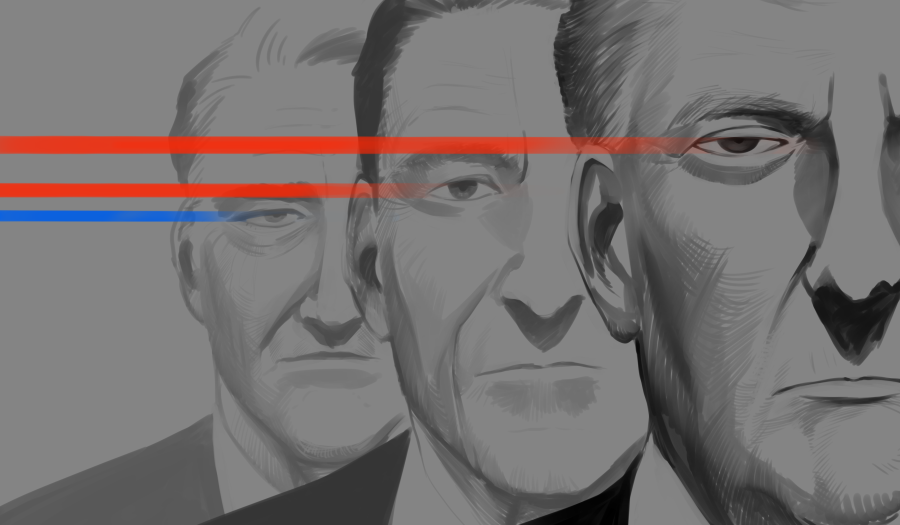How a history of both action and silence foreshadowed the failure of President Trump’s America in addressing the COVID-19 pandemic
Contagious. Hope, healing, and action are all contagious. But so is a virus. So is stigma. So is inaction. Sadly, the Trump administration falls decidedly into the latter category. Infection has plagued our country, yet our government has done nothing. While Americans make up less than 5 percent of the world’s total population, we make up 20 percent of the world’s COVID-19 cases. Throughout history we, as a nation, have faced many hardships, but it is the actions of our leaders which have determined our subsequent triumphs. In our criticism of the incumbent administrations’ effectiveness, we have long held the key towards tackling our crises.
Citing their fear of big government, conservative lawmakers and officials have shunned the idea of any type of restriction. They claim that any mandates to keep Americans safe would largely stunt economic growth and prosperity. But an economy is built on people, and with the safety of the people, we can ensure the continuing strength of our economy. In a time of crisis, care for the people translates handsomely to economic growth. Rather than gaining the trust of Americans in our federal capabilities like President Roosevelt did during the Great Depression, President Trump continued to encourage the people to dread any government intervention. When our nation’s leader does not trust his own institutions, it is our job to restore faith in them.
Glancing back at the trials and tribulations our nation has faced, we can begin to understand why our current approach is doomed to fail. During the Great Depression, FDR invested in the people. In a time where confidence was lost in stock investments, he worked to rebuild that confidence: not with checks alone, but with jobs and monetary security with serious banking reform. He closed banks, which in the short term might have hurt panicked Americans trying to withdraw their money from the institutions that had swallowed their savings. In the long term, however, he paved the way for a system where banks were held accountable for funds with which they were entrusted. The leadership-motivated erasure of stigma towards government intervention led to everlasting success.
When FDR closed the banks, he was thinking of Americans’ prosperity in the long term. When Trump kept the country and its stores open, he thought about his popularity in the short term. During the COVID-19 crisis, Donald Trump refused to back the people. His lack of investment in contact tracing ensured the vast reach that this pandemic has gained. His refusal to enforce lockdowns or limits on gatherings locked our nation in a downward spiral where every day we are breaking records of new coronavirus cases. In a time when we were decimated by a deadly virus, he spurned safety and masks. Even with many of us Americans taking proper precautions, there remain thousands who heed the president’s counsel exclusively. In the heat of the Great Depression, we as a country united behind common sense reforms. Conservatives and liberals succeeded in understanding the plight of much of the country. Minimal inconveniences were endured by the fortunate as they waited for their destitute neighbors to regain their financial grounding.
In the face of the Great Depression, FDR knew that the “nation ask[ed] for action, and action now,” (First Inaugural Address). But Mark Meadows, a senior official under President Trump, deemed it impossible to fight our crisis, stating in a CNN interview with Jake Tapper that “[They were] not going to control the pandemic.”
President Trump is not the first to utilize stigma to shirk his responsibilities in light of an epidemic. While Trump hid his inaction behind the facade of favoring small government, Reagan hid his abysmal AIDS response behind the facade of condemning homosexuality. In a time of crisis, these leaders’ silence was, and still is, deafening. Trump’s inaction, like Reagan’s, for any reason, led to and continues to guarantee that Americans will contract the virus at increasing rates. Rather than stigmatizing death, loss, and suffering, President Trump shamed government-sponsored aid to ensure our safety. He has halted major action by tainting the role that the government has successfully played in previous crises. Rather than setting aside personal philosophies behind LGBTQ+ rights or economic prosperity to construct a national action plan, we let our presidents’ personal rhetoric encourage our negligence.
Our current progress has been stalled by stigma from the upper echelons of our government. But it is “We the People” who decide who represents us, and it is also “We the People” who get to decide what matters most: a sense of faux liberty or a guarantee on life. Do all of us truly have a right to “Life, Liberty, and the pursuit of Happiness” if our blind faith in the president’s skepticism puts others in harm’s way? This is not about political ideology. Just as temporarily closed banks did not bankrupt Americans, a temporary mask mandate does not enslave us. The stigma surrounding perceived tyranny is far from reality. Yes, our nation’s executive branch currently stands on one side of this issue, but it is our job to counter their narrative. It is our job to follow science. It is our duty to accept rational regulation. It is time to stigmatize any position that causes preventable death during this pandemic.
Art by Yui Kita for the UC San Diego Guardian




















